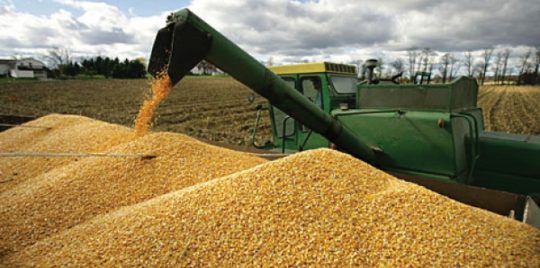
-
Published: 06 June 2022

With the completion of the Russian military operation in Ukraine which began last 24 February the day of its 100, grain shipments from Ukraine have ceased, with Russia effectively controlling or closing all of Ukraine's ports on the Black Sea
The Commander-in-Chief of the NATO Forces in Europe, Christopher Cavoli, demanded a full approach to the Russian blockade of Ukrainian ports, which threatens global food shortages and continued political turmoil around the world.
In comments reported by the Wall Street Journal, Kavoli added that the problem of grain exports is no longer only a Ukrainian crisis, but also a global crisis, especially since Ukraine exports about 10 percent of global wheat, and wheat harvesting will begin by the end of June.
The military operation had hampered Ukraine's exports of wheat and other goods, hurting consumers as food prices rose, especially in the world's poorest countries, and the world was threatened by a grinding food crisis according to United Nations data.
On the Russian side facing international accusations of causing a global food crisis, Russian President Vladimir Putin stated that "there are no problems in shipping grain from Ukraine", adding that grain can be "exported from Ukraine through Romania and Poland."
In his remarks, Putin stressed that "Russia is ready to ensure the security of grain exports from Ukraine's ports, and the ports of the Sea of Azov."
The Russian President noted that "grain transport vessels can cross without problems if Ukraine clears ports of mines", noting that "Russia will not carry out attacks from the sea during mine clearance".
As global food insecurity was exacerbated by the conflict, Amin Awad, United Nations Coordinator for the Crisis in Ukraine, emphasized that the Organization was doing its utmost to secure the release of grain exports stuck in Ukraine's Black Sea ports.
Awad highlighted the difficulties associated with international trade with Russia despite the lack of sanctions on humanitarian exports of food and fertilizers from the country.
The UN official explained that some 1.5 billion people "need this food and fertilizer" around the world, adding that he hopes the negotiations will proceed smoothly and the blockade of ports will end as soon as possible so that fertilizer and food exports can resume before we face another crisis.
Here, former Russian General Alexander Artamatov says, a weapon used and marketed by the West is "scarecrow from famine".
Russia and Ukraine contribute about one third of the world's wheat supply, while Russia is also a major global exporter of fertilizer and Ukraine is a major exporter of maize and sunflower oil.
